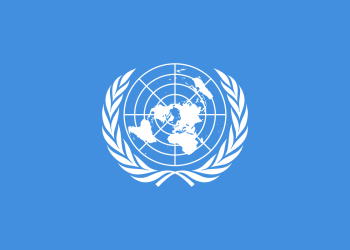The Ministry of Economy and Trade met at its Tripoli headquarters yesterday meat and livestock suppliers in a joint effort to attempt to prevent meat prices from rising during the fasting month of Ramadan (starting 23 March). The meeting included importers and breeders of livestock and importers of frozen meats and poultry.
The meeting was headed by the Undersecretary of the Ministry for Commercial Affairs, Suhail Abu Shiha, and reviewed and presented supply problems and obstacles facing suppliers and breeders to the so-called Emergency Room formed by Cabinet Resolution No. 107 of 2023. The Emergency Room was formed by Prime Minister Abd Alhamid Aldabaiba to regulate prices in Ramadan which have a habit of rising due to high, short term demand. Ramadan is a high consumption month.
Abu Shiha confirmed that the Ministry is working to overcome difficulties and obstacles and provide the necessary facilities to supply this important commodity in accordance with animal health standards, while following up changes in meat prices within the local market to reach the appropriate price.
Adoption of indicative prices
The Undersecretary referred to the adoption of an indicative price through the Emergency Room and a study of the limited countries approved for the supply of livestock with the possibility of urgently opening new sources for direct supply to cover local demand and achieve price stability during the month of Ramadan.
Ministry and suppliers have prepared supply plans
Meanwhile, speaking exclusively to Libya Herald, Abu Shiha said that the Ministry of Economy and Trade has prepared plans to address any shortage in the provision of basic food commodities and red meat, poultry meat, in cooperation with breeders at home and suppliers of live livestock and frozen meat from abroad.
2022 livestock imports decreased, expected to rise in 2023
Abu Shiha stated that Libya’s imports of livestock decreased in 2022 by 37 percent compared to imports of 2021. Imports of livestock in 2022 totalled US$ 57 million while for January and February of this year they reached US$ 12 million. He therefore expected imports to be higher for 2023 than last year.
He also revealed that imports of frozen meat in 2022 amounted to US$ 330 million, and in January and February of this year amounting to US$ 40 million.
Local livestock represents 60 percent of local consumption
With regard to local meat, livestock and poultry, Abu Shiha said that there are no specific figures for it in terms of value and quantity, but it represents nearly 60% of the total consumption of meat in Libya. this includes what is consumed by citizens who raise livestock and poultry in their small farms and consume their meat directly and not sell it in the market.
Russia-Ukraine war, feed and grain prices affect local meat prices
Abu Shiha added that the prices of meat are affected by the prices of feed, which in turn are affected by the rise in grain prices, especially maize, due to the Russian-Ukrainian war, as well as natural disasters in some producing countries. Therefore, meat prices have increased in general in Libya, and this state of high prices has spread to all countries of the world. Libya is affected by all international factors because it relies on importing a lot of commodities to cover its consumer needs, especially meat, such as the rising cost of fodder this year.








